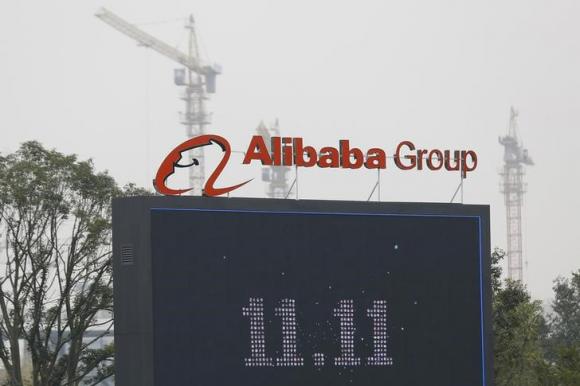|
 |
|
The logo of the Alibaba Group is seen inside the company's headquarters in Hangzhou, Zhejiang province November 11, 2014. [Photo/Agencies] |
Chinese e-commerce company Alibaba Group Holding Ltd has agreed to prevent the sale of up to 15 illegal or dangerous toys in the United States, the US Consumer Product Safety Commission's (CPSC) chairman said on Tuesday.
It is the first such agreement between the CPSC and a foreign company, CPSC Chairman Elliot Kaye said on the sidelines of the Hong Kong Toys and Games Fair.
"We're thrilled to cross beyond our borders and work with whomever we need to," Kaye said. The deal is not, however, enforceable.
The CPSC will give Alibaba, the world's largest e-commerce company, a list of between five and 15 children's toys it wants to prevent from entering the US market. Around 90 percent of US toy imports come from China, according to the commission.
Alibaba corporate affairs executive Jim Wilkinson said in a statement that the company would work "collaboratively with the chairman and his team to do everything possible to protect consumers".
Alibaba, which handles more e-commerce business than US companies Amazon.com Inc and eBay Inc combined, controls as much as 80 percent of the Chinese e-commerce market. Its initial public offering last year ranks as the world's biggest at $25 billion.
CPSC had not yet approached China's JD.com Inc or other foreign e-commerce sites, Kaye said, but added: "It's coming. If we feel like it's a viable place to go, we'll go there."
Critics say Alibaba's size makes it hard to police.
"Alibaba has talked about getting all the defective stuff off (e-commerce platform) Taobao and that's likely a claim which is way bigger than is possible to be implemented," said James Feldkamp, CEO and co-founder of China-based consumer watchdog group Mingjian.
The agreement could nevertheless help Alibaba from a publicity standpoint, he added.
"It's saying, 'We're not looking to circumnavigate everywhere and flood the US with a bunch of counterfeit garbage. We're another legitimate channel for US consumers," he said.
